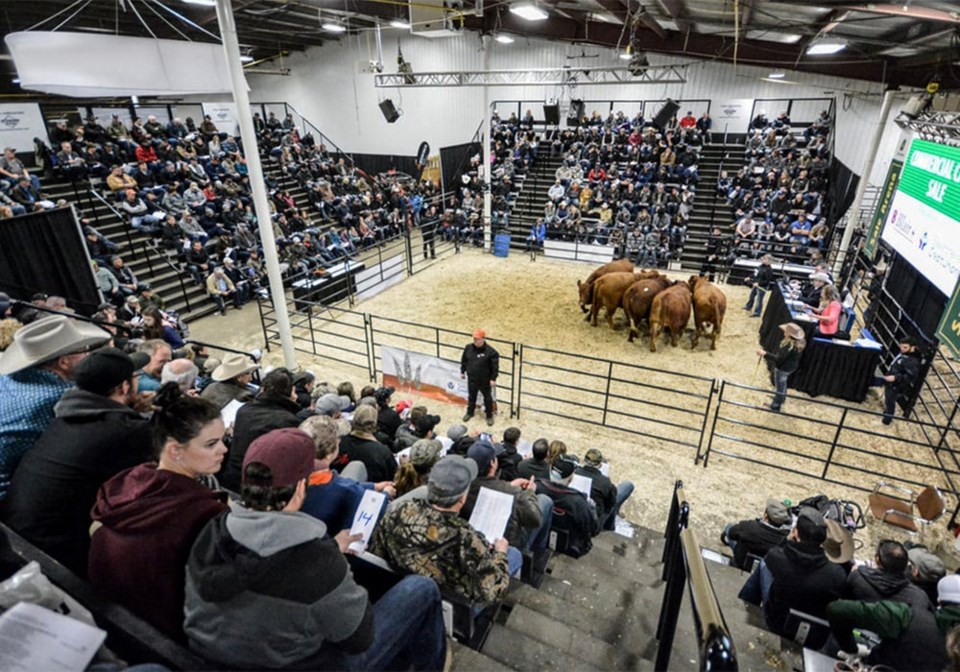REGINA — The international presence at Canadian Western Agribition is returning to pre-pandemic levels.
After only about 100 visitors from 20 countries visited in 2021 due to travel restrictions, the 2022 show saw 1,200 guests from 63 countries.
Jeremy Walsh from Dubbo, New Â鶹´«Ã½AV Wales, Australia, was a first-time visitor who said the show exceeded all his expectations.
“I think it’s the place that everybody in the world should be at the moment,” he said. “It’s an event that’s world class, absolutely world class.”
He even liked the weather.
“I’m 47 and the first time I’ve had any interaction with snow in my life is when I jumped off the airplane,” he said.
Walsh and his family raise about 400 beef cattle and sheep on their operation and they imported Canadian genetics last year.
“We imported some Canadian embryos and they seem to suit our operation,” Walsh said. “The calves are about 12 months old and will be going into our show circuit.”
The Walsh herd uses Black Angus cows and Limousin bulls. Steer competitions are a big part of the Australian show circuit and Limousins or Limousin crosses dominate those events, he said.
“It’s pretty prestigious,” he said of a win. “We need that (Limousin) muscle and softness to carry that through.”
Walsh had been through the barns and said he was hoping to purchase genetics while in Canada.
Another first-time attendee, Andrew Masterson from Â鶹´«Ã½AV Africa, was counting on networking during the show to lead to business deals afterward.
Masterson has been to Canada seven times, including a stop at Farmfair in Edmonton.
“I just thought I’ve heard how good it is and I might be impressed by what I see here,” he said. “We’re in the market for embryos and bull semen.”
Masterson has a large operation called Milagro Farms on the eastern cape near Oyster Bay.
“We milk 400 to 500 Holstein cows, then run about 600 beef cows as well as two-and-a-half thousand sheep. I’m also in the meat trade. I’ve got a butchery in our local town so I can value add my product.”
The family employs about 20 people on the farm and nine in the meat shop.
The beef cows include three registered herds: Black and Red Angus, Charolais and Simmental.
Masterson said he has been using Canadian genetics for years and “they adapt 100 percent.”
Summer temperatures in his region rise to about 40 C and drop to about 8 C in winter.
“Four years ago, I imported Charolais embryos from Dennis Serhienko and they’ve adapted amazingly. They shed their hair in summer, which is important for us because it gets very hot. It doesn’t really matter what breed, they just adapt amazingly well.”
The landscape at Oyster Bay has rolling hills that slope to the Atlantic.
“My whole farm overlooks the ocean so it’s relatively mild,” Masterson said.
His sheep flock includes a large portion of Merino for wool and mutton. He uses Hampshire Down rams on the Merino ewes to produce market lambs.
Masterson said he loves coming to Canada and expects to be back at Agribition in two years for sure, if not next year.
Walsh is also planning a return trip.
“Agribition is certainly next level. The preparation of the livestock is absolutely world class. I don’t think you’d go anywhere else in the world to see how people fit their cattle. The time and the energy spent in some of these cattle…it is absolutely top notch.”
He also praised Agribition staff for hospitality, communication and networking opportunities.
Walsh encouraged Canadian producers who are going through drought to hang on. His region just came through a four-year drought and he said there is hope.
“We are having a phenomenal season at the moment with our beef at an all-time record price.”
Bred cows are bringing $4,500 and lambs are $300.
“Take care of yourself. I know that farmers are pretty resilient, but it takes a hell of a toll on you, the drought,” he said.




